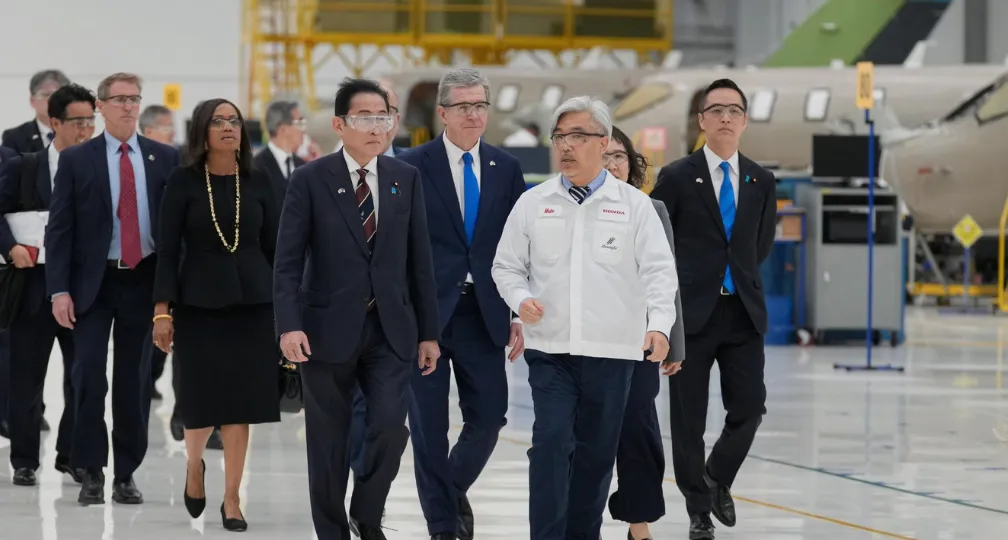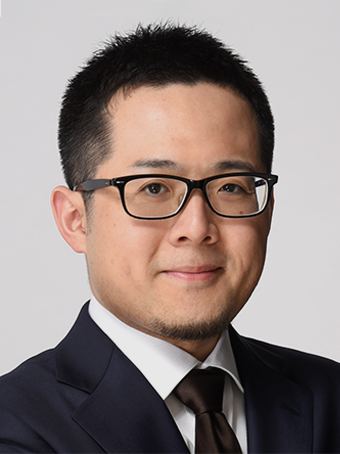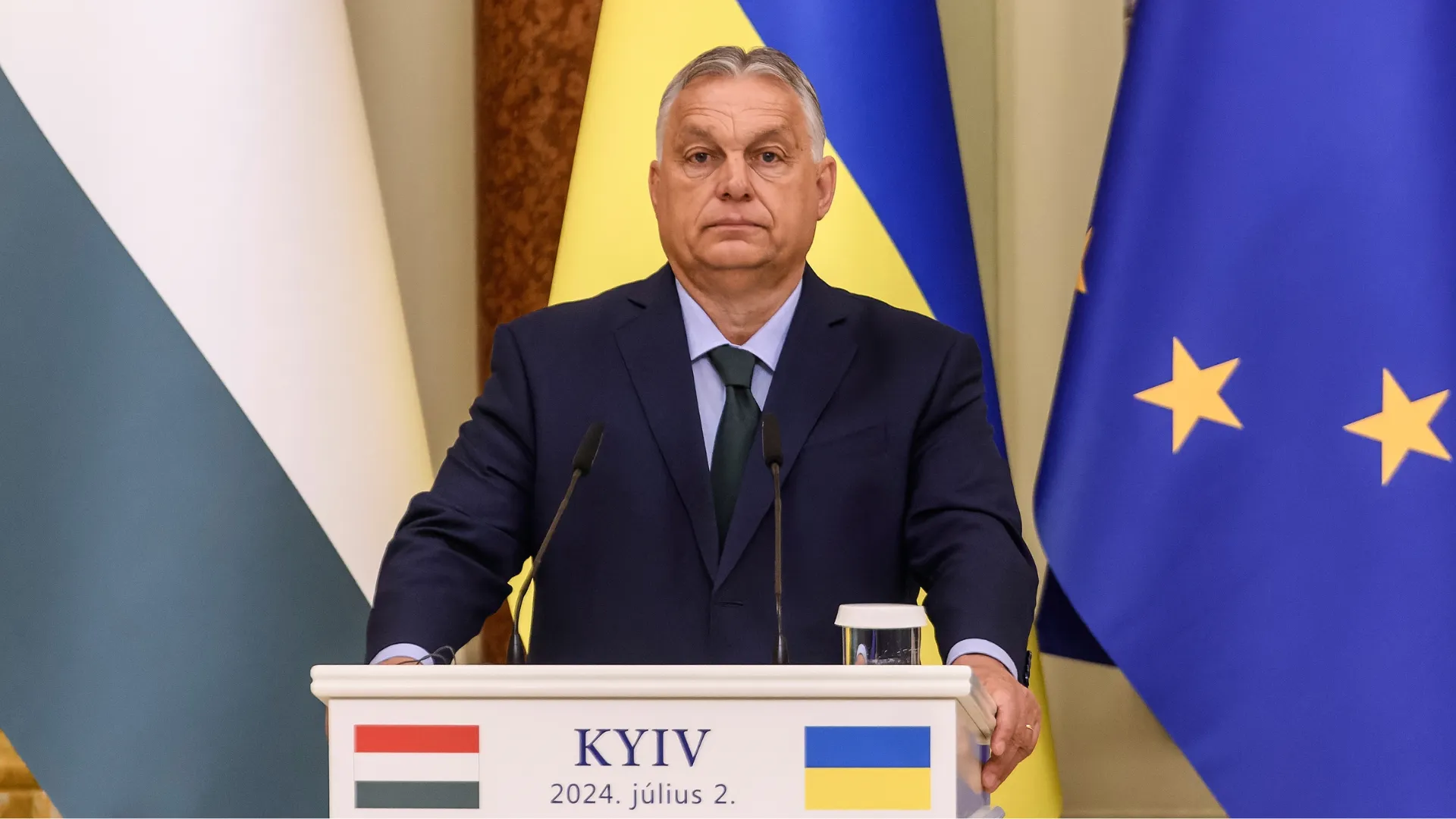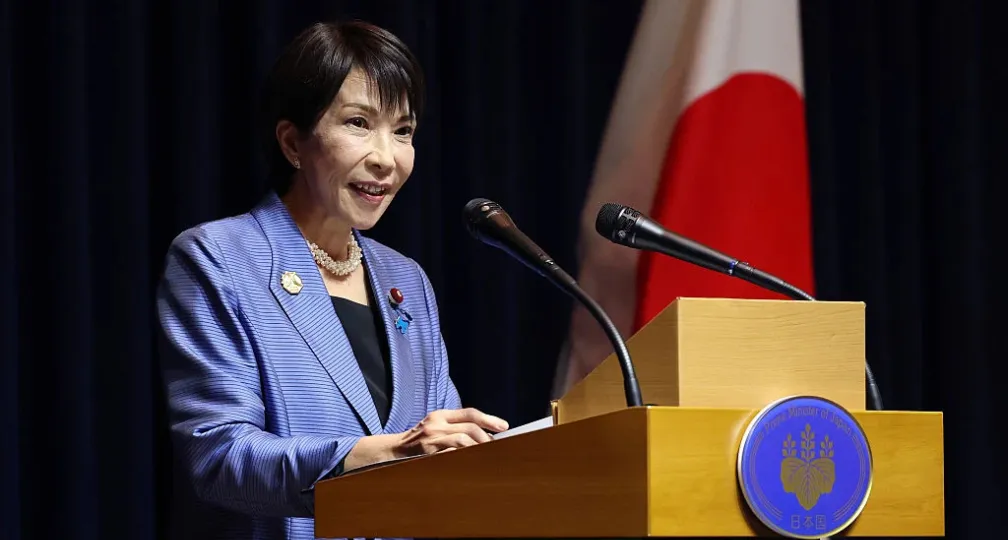Grasping industrial policy in the age of economic security

How the tables have turned. During the height of trade wars between the U.S. and Japan in the 1980s, Tokyo’s industrial policy was a regular target of American criticism. So for Japanese policymakers, Washington’s newfound focus on its own industrial policy comes as a surprise. For example, to promote strategic industries such as electric vehicles, batteries and semiconductors, the Biden administration has set aside $369 billion for green transformation under the Inflation Reduction Act of 2022 and another $52.7 billion under the CHIPS and Science Act.
On the other hand, China and Europe have been the forerunners in funding their strategic technologies. To prop up its semiconductor industry, Beijing created the National Integrated Circuit Industry Investment Fund in 2014. Known as the “Big Fund” for its scale, around 140 billion yuan ($19 billion) was raised by the central and local governments. And in response to the COVID-19 pandemic, the European Union created the Next Generation EU recovery fund, an industrial policy to promote green transformation worth €648 billion ($705 billion).
Traditionally, subsidies have been regulated by international trade rules such as those of the World Trade Organization and its forerunner, the General Agreement on Tariffs and Trade, to prevent industries from receiving too much protection and distorting free trade. But government spending has become the new norm in economic security policies since the COVID-19 pandemic — with countries engaged in a veritable battle of subsidies.
The pandemic underscored the vulnerability of global supply chains and unleashed a fierce international struggle for face masks and vaccines. Furthermore, support for the pharmaceutical industry became a matter of national, even existential concern. As a result, economic security has become a focal point. This policy area, like climate change, cannot be addressed through market mechanisms alone. This is why industrial policies, including social implementation and industry formation in key emerging technologies such as semiconductors and EVs, are required.
This class of policies is centered around three “P’s”: promoting strategic industries and the commercialization of critical and emerging technologies; protecting strategic industries through export controls and firewalls for critical technologies; and partnering with like-minded countries for joint technological development and regulatory harmonization. How much these P’s are emphasized and how many resources governments invest in each are contested areas. Furthermore, Japan, the U.S. and other Western countries should focus on three guiding principles: democratic, venture capital-style and agile industrial policy.
First, a democratic approach entails giving the private sector open or not-too-restricted access to dialoguing with policymakers, having accountability for government policies and instituting open coordination between allies and like-minded countries. Although industrial policy is often thought of as being government-led, it should be based on a democratic system, as the private sector is playing an ever-greater role in critical and emerging technologies that affect national security.
For example, a breakdown of the 14 critical technology areas identified by the U.S. Department of Defense in 2022 shows that the private sector is leading in research and development in microelectronics, quantum science, trusted AI, biotechnology, future generation wireless technology, advanced materials and renewable energy. Only three areas are specifically related to the military: directed energy, hypersonics and integrated sensing.
The private sector — both business and academia — is the main player in economic security. Unlike in the heavy and chemical industries of the past, governments can no longer identify strategic industries and emerging technologies of national importance on their own.
Governments should, instead, exercise their convening power and encourage strategic dialogue between politics, government, business and academia while targeting strategic industries. The goal is to move products from R&D to commercialization, refine them through market competition and, finally, develop them into fully-fledged industries.
Also, cross-border R&D should be carried out transparently between trusted parties. A security clearance system, which Japan is now operationalizing, is thus essential as new commercial opportunities in emerging technologies open up for Japanese companies in the U.S. and other like-minded countries.
Second, venture capital-like investments should be adopted. This is a style of investing in large portfolios with many startups that aims to earn huge profits from some investments while allowing most others to yield low returns or even fail. As governments develop industrial policies, they must also maintain fiscal discipline. They should not gamble with state funds and should avoid cooking the books without knowing policies’ outcome.
Key technologies should be targeted through strategic dialogue and detailed investment plans according to the technology readiness level (TRL). For technology to reach implementation, it must cross the “devil river” of product development, overcome the “valley of death” as it moves toward commercialization and survive the “Darwinian sea” in competitive markets.
To implement and commercialize disruptive innovations, governments must play the role of venture capital and set milestones for each level of technological maturity, with long-term follow-on investments as these targets are achieved.
An illustrative example of the “government as a venture capitalist” approach was the procurement of COVID-19 vaccines in the United Kingdom, whose Vaccine Task Force was led by a person with venture capital experience. In addition, many senior executives in funding agencies such as the Defense Advanced Research Projects Agency in the U.S. have venture capital experience.
Third, policies should be implemented in an agile manner. The Japanese government’s competitive research funding and subsidies are selective and focused but do not necessarily take technological and industrial developments — i.e., TRL — into account. Such funding is reviewed once a year at best or is based on previously determined contributions.
A lot of this funding is in the form of multiyear budgets paid in annual installments to previously chosen recipients. However, as competition in emerging technologies such as AI and quantum technologies intensifies, annual budgets are, increasingly, not enough. Agility in capital injection, cuts in losses and pivots are also needed.
In the U.S., the CHIPS and Science Act was adopted in August 2022 to boost semiconductor development, but the first public call for applications came in February last year and the first grant recipients were selected in December.
On the other hand, China’s growing sense of crisis has fueled its semiconductor production, with Huawei last September launching the Mate 60 Pro smartphone using domestically manufactured 7-nanometer chips. In addition, Beijing is raising the Big Fund’s third round, worth about 300 billion yuan ($42 billion). It is no good to lose out on policy implementation while escalating industrial competition.
The private sector is now at the forefront of geoeconomic conflicts and the first to be “attacked” in case of export controls or economic coercion. Therefore, on top of subsidies, public-private dialogue is crucial — making democratic, venture capital-style and agile industrial policy increasingly important. Considering Japan’s long history of public-private cooperation, the country has a major role to play as a “global partner” to the U.S., a message that Kishida stressed in Washington.
[Note] This article was posted to the Japan Times on May 20, 2024:
https://www.japantimes.co.jp/commentary/2024/05/20/japan/industrial-policy-subsidies-economic-security/
(Photo Credit: AP / Aflo)

Geoeconomic Briefing
Geoeconomic Briefing is a series featuring researchers at the IOG focused on Japan’s challenges in that field. It also provides analyses of the state of the world and trade risks, as well as technological and industrial structures (Editor-in-chief: Dr. Kazuto Suzuki, Director, Institute of Geoeconomics (IOG); Professor, The University of Tokyo).
Disclaimer: The opinions expressed in Geoeconomic Briefing do not necessarily reflect those of the International House of Japan, Asia Pacific Initiative (API), the Institute of Geoeconomics (IOG) or any other organizations to which the author belongs.


Senior Research Fellow
Yoshiyuki Sagara is a senior research fellow at the Asia Pacific Initiative (API), where he focuses on economic security, sanctions, health security policy including COVID-19 response, international conflicts, and Japan’s foreign policy. Before joining API in 2020, Mr. Sagara had 15 years of career experience working in the United Nations system and the Japanese government, as well as in the tech industry. From 2018 to 2020, he served as Assistant Director of the Second Northeast Asia Division (North Korea desk) at the Ministry of Foreign Affairs of Japan. From 2015 to 2018, he served in the Guidance and Learning Unit within the Policy and Mediation Division of the UN Department of Political Affairs in New York, where he analyzed and disseminated best practices and lessons learned from UN preventive diplomacy and political engagements, such as in Nigeria, Iraq, and Afghanistan. From 2013 to 2015, he served in the International Organization for Migration Sudan, based in Khartoum. As a project development and reporting officer in the Chief of Mission’s Office, he developed and implemented peacebuilding and social cohesion projects in conflict-affected areas of Sudan, especially Darfur. While serving in the Japan International Cooperation Agency (JICA) Headquarters from 2012 to 2013, he managed rural and fishery development projects in Latin America and the Caribbean region. From 2005 to 2011, he worked at DeNA Co., Ltd. in Tokyo and engaged in expanding tech businesses. Mr. Sagara has been widely published and spoke on public policy, including in the Japan Times. He coauthored a report, The Independent Investigation Commission on the Japanese Government’s Response to COVID-19 (API/ICJC): Report on Best Practices and Lessons Learned (Discover 21, 2021). He holds a Master of Public Policy from the Graduate School of Public Policy at the University of Tokyo, and a BA in law from Keio University.
View Profile-
 Fed-Treasury Coordination as Economic Security Policy2026.02.13
Fed-Treasury Coordination as Economic Security Policy2026.02.13 -
 Challenges for Japan During the U.S.-China ‘Truce’2026.02.12
Challenges for Japan During the U.S.-China ‘Truce’2026.02.12 -
 India and EU Sign Mother of All Deals2026.02.09
India and EU Sign Mother of All Deals2026.02.09 -
 Orbán in the Public Eye: Anti-Ukraine Argument for Delegitimising Brussels2026.02.04
Orbán in the Public Eye: Anti-Ukraine Argument for Delegitimising Brussels2026.02.04 -
 Trump, Takaichi and Japan’s Strategic Crossroads2026.02.03
Trump, Takaichi and Japan’s Strategic Crossroads2026.02.03
 Oil, Debt, and Dollars: The Geoeconomics of Venezuela2026.01.07
Oil, Debt, and Dollars: The Geoeconomics of Venezuela2026.01.07 Orbán in the Public Eye: Anti-Ukraine Argument for Delegitimising Brussels2026.02.04
Orbán in the Public Eye: Anti-Ukraine Argument for Delegitimising Brussels2026.02.04 When Is a Tariff Threat Not a Tariff Threat?2026.01.29
When Is a Tariff Threat Not a Tariff Threat?2026.01.29 Fed-Treasury Coordination as Economic Security Policy2026.02.13
Fed-Treasury Coordination as Economic Security Policy2026.02.13 A Looming Crisis in U.S. Science and Technology: The Case of NASA’s Science Budget2025.10.08
A Looming Crisis in U.S. Science and Technology: The Case of NASA’s Science Budget2025.10.08













